- You're invited to the GRADflix 2022 Showcase on January 31
- Leading by example
- New research could divert a billion pounds of clothes and other fabric items from landfills
- President's Advisory Committee on Environmental Sustainability (PACES) seeking undergraduate representatives
- Q and A with the experts: NATO's expanding support to Ukraine
- Friday's notes
Editor:
Brandon Sweet
University Communications
bulletin@uwaterloo.ca
You're invited to the GRADflix 2022 Showcase on January 31

A message from Graduate Studies and Postdoctoral Affairs (GSPA).
Join us for the 2023 GRADflix Showcase, where we will feature the top 25 one-minute videos submitted by current graduate students about their research.
The showcase will be streamed live on the Graduate Studies and Postdoctoral Affairs (GSPA) YouTube channel and will include amazing research videos, special guests, and more.
Be part of the action! As an audience member, you will have the opportunity to cheer on our competitors and vote for the People’s Choice winner from the comfort of your own home. The winning videos, as decided by the panel of judges, will also be announced live. Looking for examples of what to expect? Check out the winning videos from last year.
Leading by example
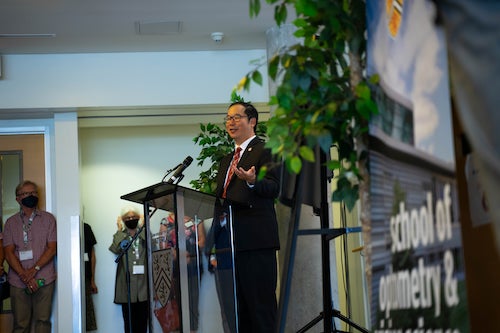
By Sam Charles.
“I’ve always felt that the best way to learn about an institution is to get involved and investigate what may be interesting. We all bring different experiences and insights to bear, and it’s amazing how one can contribute to advancing different ideas and projects. The next logical step to continue to pursue my interdisciplinary interest in promoting health at UW was to run for Senate as a member-at-large.”
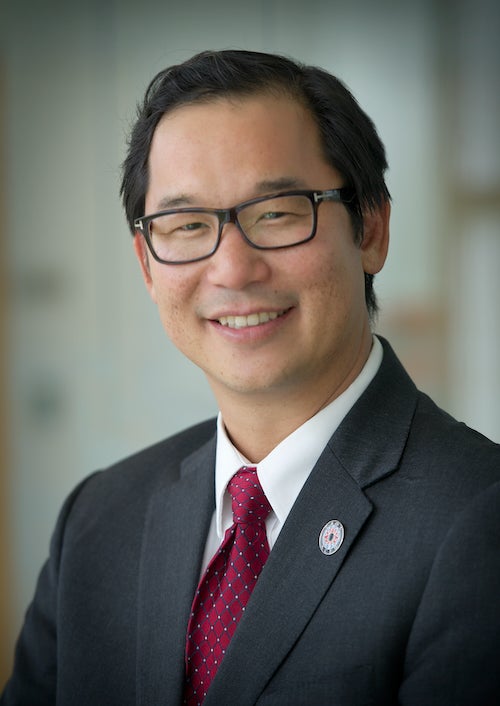
Dr. Stanley Woo is Director and Clinical Professor at the School of Optometry and Vision Science. He has served as a faculty member-at-large on Waterloo Senate since 2020.
Woo, whose father was a professor at Waterloo, and also served on Senate, says faculty senators have an opportunity to bring their own experience, insights, and perspectives to help shape the direction of the institution. “Senate provides a forum to learn more about what the University does and how.”
Prior to joining Waterloo in 2017, Woo had spent his entire academic career in the US. It was that experience along with the encouragement of his father, that prompted him to seek a seat on Senate.
“Senate is a forum for faculty to share their collective voice on important issues that impact the university. They help to shape the academic life and priorities of the institution, and provide guidance to leadership as they balance the many competing priorities and pressures in higher education,” says Woo.
Senate meets on the third Monday of each month (except July and August). The elected body plays a crucial role in the day-to-day academic policy of the institution including regulating curricula for all courses, determining standards of admission, and conferring degrees.
According to Woo, members of Senate get out of the experience what they put it. “Being aware of the various initiatives and issues is only half the equation, with the other part serving your constituents by helping with communication, awareness, and gathering input.” However, it is the relationships that he has forged with colleagues from across the University that has had the most lasting impact.
Nominations for Senate open on February 7. All eligible graduate students, staff, and faculty are encouraged to put their name forward for consideration. Nominees must provide a brief statement (100 words maximum) along with a completed nomination form to appear on the ballot. The deadline for nominations is Monday, February 13.
Learn more at uwaterloo.ca/secretariat/nominations-elections.
New research could divert a billion pounds of clothes and other fabric items from landfills

Canadians trash about a billion pounds—nearly 500 million kilograms—of fashion and home items made of fabric each year, but a new grading system could help divert most of it from landfills.
In the first study of its kind to determine the quantity and quality of textile waste in Canada, researchers from the University of Waterloo and Seneca College developed the new method to evaluate an item’s quality from A to F and whether it can be resold, recycled or tossed. In testing this method, they found that more than half of textile waste in Canada could be reused and almost a quarter could be recycled.
“Fashion consumption is at an unparalleled high,” said Olaf Weber, University Research Chair and professor in the School of Environment, Enterprise and Development at Waterloo. “Consumers buy, use and dispose of new garments, which end up in the landfill, and less than one per cent of the materials are recycled. This new method is an important step to curbing our waste.”
Canada doesn’t have a standardized process for sorting textiles. The researchers used a broader definition of textile waste by recognizing accessories, shoes and soft toys, in addition to clothing and home textiles. They also used a team of Waterloo and Seneca students and professionals from the fashion industry to sort the materials to ensure consistency in grading and proper evaluation of the item’s condition. A pair of ripped and stained jeans might receive a D grade and be flagged for repair before being donated and resold.
Overall, this new comprehensive assessment delivers more data and insights into waste management and prevention. The study determined that items graded A to D made up more than half of our current waste stream, so could be resold or reused. This finding emphasizes that there are many opportunities to divert textile waste in Canada, yielding massive benefits.

“Reducing our waste is a crucial step to addressing climate change,” said Weber, co-author of the paper. “Avoiding the textile waste assessed in our study could conserve resources and divert a significant amount of greenhouse gas emissions — in just one year the equivalent of driving 310,000 cars, plus supplying energy to 218,000 Canadian homes and filling 35,000 Olympic pools of water.”
Textile recycling in Canada is still in its infancy and so more investigation into its feasibility in some communities is necessary.
“The tremendous benefits for the economy and environment make pursuing the method worth the effort,” said Weber.
The study, Textile waste in Ontario, Canada: Opportunities for reuse and recycling, appears in the Journal of Resources, Conservation and Recycling.
President's Advisory Committee on Environmental Sustainability (PACES) seeking undergraduate representatives
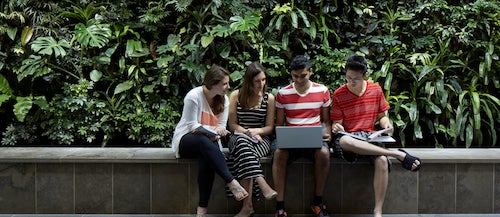
The President’s Advisory Committee on Environmental Sustainability (PACES) is recruiting an undergraduate representative to join the committee for a two-year term, beginning in winter 2023. The committee represents a cross-section of Waterloo stakeholders, including students, faculty, staff, and administration, who provide advice to the president on campus sustainability programs and policies. The position is open to any undergraduate student enrolled at the University of Waterloo through spring 2024.
The Fair Trade Working Group (FTWG) is also seeking a student representative for a one-year term through fall 2023. The FTWG supports Waterloo’s progress to receive and maintain its Fair Trade Campus designation.
Applications are due by Friday, February 10. Visit the PACES webpage for more information and to submit an application.
Q and A with the experts: NATO's expanding support to Ukraine
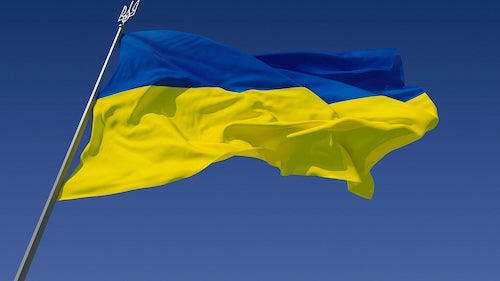
While continuing to avoid direct engagement in Russia's war on Ukraine, North Atlantic Treaty Organization (NATO) allies have dramatically expanded their military assistance. Dr. Alexander Lanoszka of the University of Waterloo is an expert on military alliances. He recently co-authored a study that examines the political and military implications of NATO's partial yet growing commitment to Ukraine.
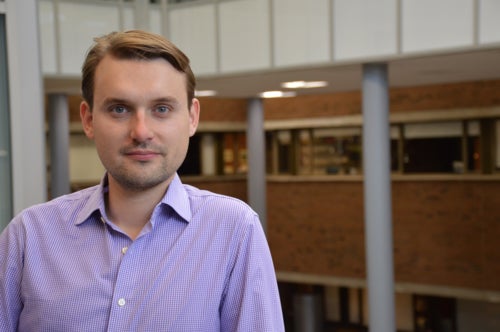
How would you describe the expansion of NATO's military assistance to Ukraine almost one year since Russia's invasion?
Before Russia's invasion last February, Ukraine received much less military assistance than what is commonly assumed. NATO members have, however, dramatically stepped up their military assistance. This process has involved many twists and turns. When the Russian build-up on Ukraine's borders became clearer in its implications, a select group of NATO members gave Ukraine anti-tank guided munitions and other weapons, typically on the belief that the most likely way for the conflict to evolve would be that of insurgency. However, as the Ukrainian Armed Forces were able to put up a stiff and mostly successful resistance, NATO members expanded their assistance, intending to solve specific problems. One has been Russia's artillery advantages and the need to replenish ammunition. Another has been to defend against missile and drone attacks using more sophisticated air defence systems.
What risks do NATO members take in increasing military assistance to Ukraine?
For much of the period between 2014 and 2021, most of NATO was wary of providing military assistance to Ukraine. Earlier in the war, NATO members were unsure whether weapons sent to Ukraine would reach the right units. Corruption and the sorry state of the Ukrainian military at the time were serious impediments. They also wanted to give early peace processes, however flawed, a chance to work. Over time, those considerations waned thanks to continued Russian aggression, Ukrainian security sector reform, and the military training that Ukraine received from several NATO countries.
Escalation concerns never disappeared in 2022, but they have changed. Some countries have resisted providing heavier weapons because of how Russia might react. Yet those worries, though still present, have waned upon seeing that Russia has not escalated militarily against NATO members.
The art of partial commitment: the politics of military assistance to Ukraine by Lanozska and Jordan Becker is published in the journal Post-Soviet Affairs.
Alexander Lanoszka is an Assistant Professor of International Relations at the University of Waterloo. He studies alliance politics, theories of war, and European security. He sits on the editorial board of the journal Contemporary Security Policy and is the Ernest Bevin Associate Fellow in Euro-Atlantic Geopolitics at the UK-based think-tank Council on Geostrategy.
Friday's notes
It's the first payday of the new year for employees on the monthly payroll plan, and thank goodness for that, as it feels like it's been quite a while since December 23, the final pay period of 2022 for employees paid monthly. You can review the payroll dates for biweekly and monthly pay cycles on the Human Resources website. Don't spend it all in one place.
This is a reminder that the deadline to register for the Centre for Extended Learning (CEL) course, "Getting Ready to Facilitate Online Courses: TA Training – Winter 2023," is Monday, January 30.
Here's the final Consent Week Tip of the Day provided by the Sexual Violence Prevention and Response Office (SVPRO):
Taking pictures and videos with our phones and posting them online has become a common activity. However, not everyone wants their picture or video taken and not everyone wants these posted online.
Tip: Ask before you take someone’s (children included) picture or video. Ask before you post someone’s (children included) picture or video online. Respect their answer. If someone asks you to take their picture down, take it down as soon as possible without asking why.
Link of the day
International Holocaust Remembrance Day
When and Where to get support
Students can visit the Student Success Office online for supports including academic development, international student resources, immigration consulting, leadership development, exchange and study abroad, and opportunities to get involved.
Instructors looking for targeted support for developing online components for blended learning courses, transitioning remote to fully online courses, revising current online courses, and more please visit Agile Development | Centre for Extended Learning | University of Waterloo (uwaterloo.ca).
Faculty, staff, post-doc and graduate student instructors can find upcoming teaching and learning workshops, self-directed modules and recordings of previous events on Centre for Teaching Excellence Workshops and Events page.
Instructors can access the EdTech Hub to find support on Waterloo’s centrally supported EdTech tools. The Hub is supported by members of IST’s Instructional Technologies and Media Services, Centre for Teaching Excellence, Centre for Extended Learning and subject matter experts from other campus areas.
Supports are available for employees returning to campus. Visit IST’s Hybrid Work and Technology guidelines and workplace protocols to assist with the transition.
Students with permanent, temporary and suspected disabilities and disabling conditions (medical conditions, injuries, or trauma from discrimination, violence, or oppression) can register with AccessAbility Services for academic accommodations (classroom accommodations, testing accommodations, milestone accommodations).
Instructors can visit AccessAbility Services' Faculty and Staff web page for information about the Instructor/Faculty role in the accommodation process. Instructors/Faculty members are legally required to accommodate students with disabilities. AccessAbility Services (AAS) is here to help you understand your obligations, and to offer services and resources to help you facilitate accommodations.
The Writing and Communication Centre has in-person and virtual services to support grad and undergrad students, postdocs and faculty with any writing or communication project. Services include one-to-one appointments, drop-ins at Dana Porter Library, online workshops, writing groups, English conversation practice, and custom in-class workshops.
Research Ethics: Find yourself with an ethical question, unsure if your work requires an ethics review, or need advice about putting together a research ethics application? Reach out to one of our friendly staff by booking a consultation or email us with your questions.
Co-op students can get help finding a job and find supports to successfully work remotely, develop new skills, access wellness and career information, and contact a co-op or career advisor.
The Centre for Career Action (CCA) has services and programs to support undergrads, grad students, postdocs, alumni, and employees in figuring out what they value, what they’re good at, and how to access meaningful work, co-op, volunteer, or graduate/professional school opportunities. Questions about CCA's services? Live chat, call 519-888-4047, or stop by our front desk in the Tatham Centre 8:30 a.m. to 4:30 p.m., Monday to Friday.
Drop-in to in-person Warrior Study Halls on Thursdays from 5:00 p.m. to 6:30 p.m. in DC and DP. Join a Peer Success Coach to set goals and work independently or in groups each week.
Renison's English Language Institute continues to offer virtual events and workshops to help students practice their English language skills.
If you feel overwhelmed or anxious and need to talk to somebody, please contact the University’s Campus Wellness services, either Health Services or Counselling Services. You can also contact the University's Centre for Mental Health Research and Treatment. Good2Talk is a post-secondary student helpline available to all students.
The Library is here to help, both in person and online. Our spaces are open for access to book stacks, study space, computers and printers, and the IST Help Desk. For in-depth support, meet one-to-one with Librarians, Special Collections & Archives and Geospatial Centre staff. Access our resources online for anywhere, anytime learning and research. Full details on current services and hours are available on the Library’s COVID-19 Update webpage.
The Faculty Association of the University of Waterloo (FAUW) continues to advocate for its members. Check out the FAUW blog for more information.
The University of Waterloo Staff Association (UWSA) continues to advocate for its members. Check out the UWSA blog for more information.
The Office of Equity, Diversity, Inclusion & Anti-Racism (EDI-R) works with students, faculty and staff across campus to advance equity and Anti-racism through evidence-based policies, practices and programs. If you have a concern related to Anti-racism and/or equity, please complete our intake form.
The Sexual Violence Prevention and Response Office (SVPRO) supports all members of the University of Waterloo campus community who have experienced, or been impacted, by sexual violence. This includes all students, staff, faculty and visitors on the main campus, the satellite campuses, and at the affiliated and federated Waterloo Institutes and Colleges. For support, email: svpro@uwaterloo.ca or visit the SVPRO website.
The Office of Indigenous Relations is a central hub that provides guidance, support, and resources to all Indigenous and non-Indigenous campus community members and oversees the University's Indigenization strategy.
The Waterloo Indigenous Student Centre, based at United College, provides support and resources for Indigenous students, and educational outreach programs for the broader community, including lectures, and events.
WUSA supports for students:
Peer support - MATES, Glow Centre, RAISE, Women’s Centre - Click on one of the links to book an appointment either in person or online for the term.
Food Support Service food hampers are currently available from the Turnkey Desk 24/7 in the Student Life Centre. Drop-off locations are also open again in SLC, DC, DP, SCH, and all residences.
Co-op Connection all available online.
Centre for Academic Policy Support - CAPS is here to assist Waterloo undergraduates throughout their experience in navigating academic policy in the instances of filing petitions, grievances and appeals. Please contact them at caps@wusa.ca.
WUSA Student Legal Protection Program - Seeking legal counsel can be intimidating, especially if it’s your first time facing a legal issue. The legal assistance helpline provides quick access to legal advice in any area of law, including criminal. Just call 1-833-202-4571.
Empower Me is a confidential mental health and wellness service that connects students with qualified counsellors 24/7. They can be reached at 1-833-628-5589.
GSA-UW supports for graduate students:
The Graduate Student Association (GSA-UW) supports students’ academic and social experience and promotes their well-being.
Advising and Support - The GSA advises graduate students experiencing challenges and can help with navigating university policies & filing a grievance, appeal, or petition.
Mental Health covered by the Health Plan - The GSA Health Plan now has an 80 per cent coverage rate (up to $800/year) for Mental Health Practitioners. Your plan includes coverage for psychologists, registered social workers, psychotherapists, and clinical counselors.
Dental Care - The GSA Dental Plan covers 60 to 70 per cent of your dental costs and by visiting dental professionals who are members of the Studentcare Networks, you can receive an additional 20 to 30 per cent coverage.
Student Legal Protection Program - Your GSA fees give you access to unlimited legal advice, accessible via a toll-free helpline: +1-833-202-4571. This advice covers topics including housing disputes, employment disputes, and disputes with an academic institution.
The Graduate House: Open Monday to Tuesday 11:30 a.m. to 7:00 p.m. and Wednesday to Friday 11:30 a.m. to 9:00 p.m. We’re open to all students, faculty, staff, and community members. The Graduate House is a community space run by the GSA-UW. We’re adding new items to the menu. Graduate students who paid their fees can get discounts and free coffee.
When and Where
Warriors Game Day Tickets and Season Passes, on sale now. Cheer on your Warriors W/M Basketball, Football W/M Hockey and W/M Volleyball teams at home during the 2022-23 season. Purchase today.
Fitness and Personal Training - Registrations opened January 5 this winter with Personal Training and Small Group Training as well as a Free Warrior Workout Program.
Student Health Pharmacy in the basement of the Student Life Centre is now offering Covid booster shots (Pfizer and Moderna) and flu shots. Call 519-746-4500 or extension 33784 for an appointment. Walk-ins always welcome.
Warriors Basketball vs. Algoma,Friday, January 27, (W) 6:00 p.m., (M) 8:00 p.m., PAC. Raising of the Eagle Feather Ceremony between games. Buy your tickets today.
Warriors Basketball vs. Algoma,Saturday, January 28, (W) 4:00 p.m., (M) 6:00 p.m., PAC. Fantastic Alumni Day, Staff and Retirees Day, Think Pink Game in support of the Canadian Cancer Society, Youth Basketball Day (free ticket for youth wearing a basketball jersey). Buy your tickets today.
Deadline to register for Centre for Extended Learning (CEL) "Getting Ready to Facilitate Online Courses: TA Training – Winter 2023" course, Monday, January 30.
2SLGBTQ+ Fundamentals, Tuesday, January 31, 10:00 a.m. to 12 noon, online.
NEW - Warrior Basketball vs. Laurier, Wednesday, February 1, (W) 6:00 p.m., (M) 8:00 p.m., PAC. Shoot for Change, Alliance “We Are One” Game, Mike Moser Day. Buy your tickets today!
NEW - The Balsillie School presents The Age of Anarchy: Navigating a World Where Everyone is Connected and No One is in Charge, Wednesday, February 1, 7:00 p.m. to 8:30 p.m., CIGI auditorium and online.